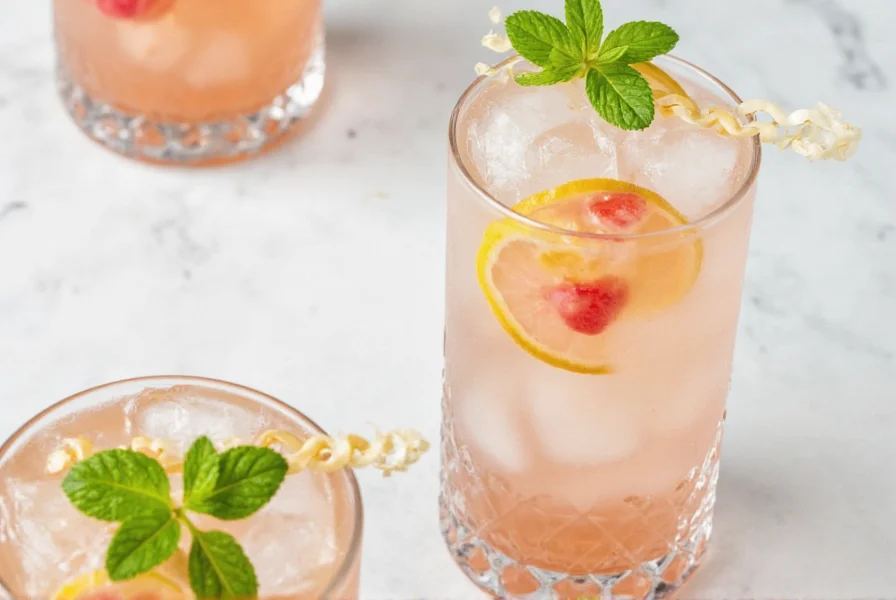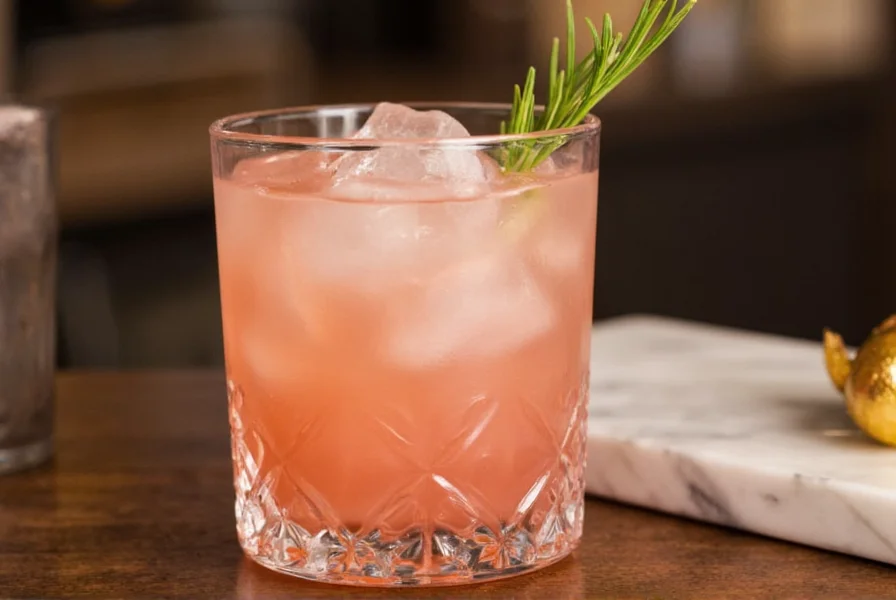The Story Behind the Clover Club
Created around 1910 at the Bellevue-Stratford Hotel in Philadelphia, the Clover Club cocktail takes its name from a men's literary and political club that met at the hotel. This elegant pink drink was a favorite among the club's members before Prohibition temporarily silenced its popularity. The cocktail experienced a significant revival during the craft cocktail renaissance of the early 2000s, with bartenders rediscovering its perfect balance of sweet, sour, and botanical elements.
Essential Clover Club Ingredients
The magic of a perfect Clover Club lies in its simple yet precise ingredient ratios. Each component serves a specific purpose in creating the cocktail's distinctive flavor profile and texture.
| Ingredient | Traditional Amount | Purpose |
|---|---|---|
| Dry Gin | 2 oz (60ml) | Botanical foundation and alcoholic base |
| Fresh Lemon Juice | 0.75 oz (22ml) | Acidity to balance sweetness |
| Raspberry Syrup | 0.5 oz (15ml) | Fruit sweetness and signature pink color |
| Egg White | 1 whole | Creamy texture and foam topping |
Step-by-Step Preparation Guide
Creating an authentic Clover Club requires attention to technique as much as ingredients. Follow these steps for professional results:
- Prepare your shaker tin with all ingredients: 2 oz dry gin, 0.75 oz fresh lemon juice, 0.5 oz raspberry syrup, and 1 egg white
- Perform a "dry shake" - shake vigorously without ice for 15 seconds to emulsify the egg white
- Add ice to the shaker and shake again for 10-15 seconds until well-chilled
- Double-strain through a fine mesh strainer into a chilled coupe glass
- Garnish with 2-3 fresh raspberries on a cocktail pick
Ingredient Selection Guide
Quality ingredients make the difference between a good and exceptional Clover Club:
Gin Selection
Choose a London dry gin with prominent juniper notes but balanced botanicals. Plymouth gin works well for a slightly softer profile. Avoid overly floral or citrus-forward gins that might compete with the raspberry.
Raspberry Syrup Options
For the best authentic clover club cocktail recipe results, make your own syrup:
- Homemade: Combine equal parts fresh raspberries, sugar, and water. Simmer gently for 10 minutes, strain, and cool.
- Quality Commercial: Look for all-natural raspberry syrup without artificial colors.
- Avoid: Raspberry liqueur (changes alcohol content and balance).
Common Mistakes to Avoid
Even experienced home bartenders make these errors when preparing a traditional clover club drink recipe:
- Skipping the dry shake: The dry shake before adding ice is crucial for proper aeration and texture.
- Using old lemon juice: Freshly squeezed lemon juice makes a dramatic difference in flavor.
- Over-shaking with ice: Too much shaking after adding ice dilutes the drink excessively.
- Incorrect syrup ratio: Too much raspberry syrup overwhelms the delicate gin botanicals.
Perfecting Your Technique
The hallmark of a well-made Clover Club is its luxurious foam topping and balanced flavor. When executed properly, the cocktail should have a silky texture with distinct layers of flavor - the raspberry should complement rather than dominate the gin. The foam should maintain its structure for several minutes after pouring, not immediately collapsing into the drink.
Modern Variations Worth Trying
While purists prefer the classic recipe, these thoughtful adaptations maintain the cocktail's essence while offering new dimensions:
- Seasonal Fruit Swap: Replace raspberry syrup with blackberry or strawberry syrup in their respective seasons.
- Herbal Enhancement: Add 2-3 fresh basil or mint leaves when shaking for an aromatic twist.
- Smoky Variation: Use 0.5 oz mezcal blended with 1.5 oz gin for a subtle smoky complexity.
- Lower ABV Option: Reduce gin to 1.5 oz and add 0.5 oz of dry vermouth for a more sessionable version.
Serving Recommendations
The Clover Club shines as an aperitif before dinner or as a sophisticated brunch cocktail. Serve in a chilled coupe glass to showcase its beautiful pink color. This cocktail pairs exceptionally well with:
- Light seafood dishes like seared scallops
- Cheese plates featuring goat cheese or brie
- Brunch items such as smoked salmon blinis
- Fruit-based desserts like lemon tart

Why This Classic Endures
The Clover Club's resurgence in popularity isn't accidental. Its perfect balance of sweet, sour, and botanical elements creates a drinking experience that's simultaneously refreshing and complex. Unlike many cocktail fads, this pre-Prohibition classic has stood the test of time because it delivers consistent quality when made with care and quality ingredients. The cocktail's visual appeal, distinctive texture from the egg white, and approachable flavor profile make it equally suitable for cocktail novices and connoisseurs.
Frequently Asked Questions
Can I make a Clover Club cocktail without egg white?
Yes, you can omit the egg white, but you'll lose the signature creamy texture and foam topping. For a vegan alternative, use 0.25 oz aquafaba (chickpea brine) which creates similar foam properties without animal products.
What's the best gin for a traditional Clover Club recipe?
A classic London dry gin like Beefeater or Tanqueray works best for an authentic clover club cocktail recipe. These gins have prominent juniper notes that balance well with the raspberry without being overwhelmed. Avoid overly floral or citrus-forward gins that might compete with the raspberry flavor.
How can I make raspberry syrup for my Clover Club at home?
Combine 1 cup fresh or frozen raspberries, 1 cup sugar, and 1 cup water in a saucepan. Simmer gently for 10 minutes, then let cool. Strain through a fine mesh sieve to remove seeds, then refrigerate. This homemade raspberry syrup will keep for 2-3 weeks and creates the most authentic clover club drink recipe experience.
Why does the Clover Club recipe require a dry shake before adding ice?
The dry shake (shaking without ice) emulsifies the egg white and creates a stable foam structure before chilling. This technique is essential for achieving the Clover Club's signature silky texture and lasting foam topping. Skipping this step results in a less stable foam that collapses quickly in your glass.











 浙公网安备
33010002000092号
浙公网安备
33010002000092号 浙B2-20120091-4
浙B2-20120091-4